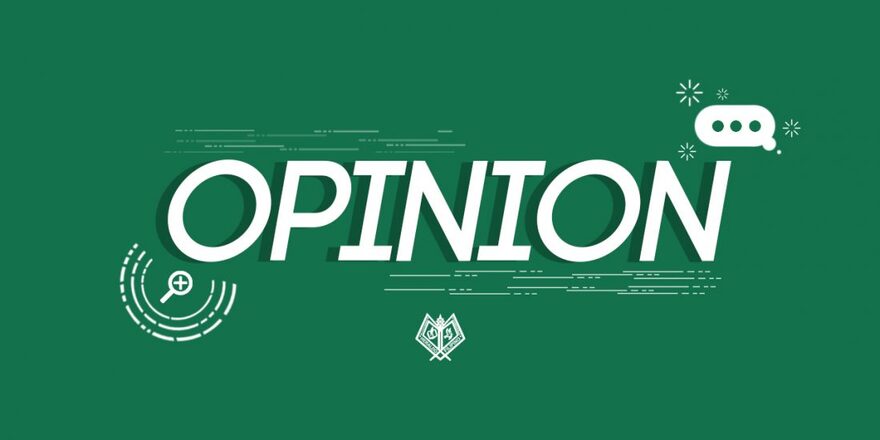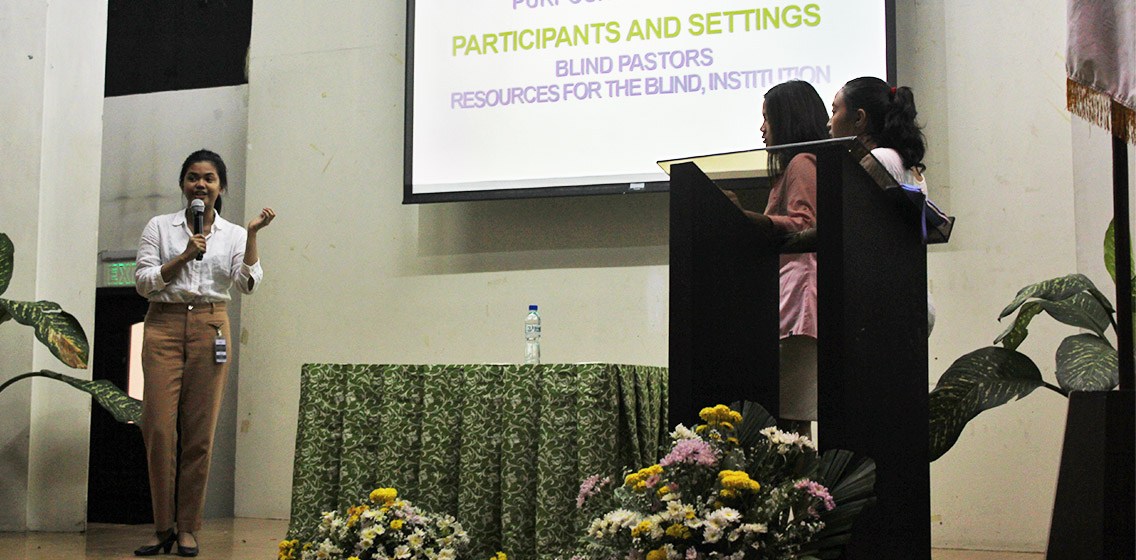Cursing’s unspoken phenomena
Graphic art by Danna Claire Javier
Words are a simple combination of letters that may enhance or destroy our day based on its usage. However, cursing, a form of liberating expression, is a powerful element where we reveal our personality with snap of words that would sully children’s ears when things don’t go our way. Raised to think that swearing will lead us to a trip to the bathroom to wash our mouths with soap, the reality is that dropping the f-bomb might not be as terrible as we’re led to believe. Curse words, with all its negativity, might just help us have a healthy and independent way of living.
Off-loading hardships
Projects assigned last minute, stuck in heavy traffic when you’re already late, and unstable Internet connection during enrollment––these are just some of the things that make up college life. Situations like these are rife with cussing, swearing, and cursing that liberates troubles from our heavy chest and eases the burdens we keep within ourselves.
It takes motivation and courage to oust our emotions, and the desire of flaring negativities is possible with cursing. In a prevention study published in Biological Psychiatry, observation on spewing out swear words actually prevents our brain from releasing too much cortisol, a stress hormone that triggers adverse feelings. With all our college struggles, having colorful mouth is considered as a creative and an effective way to deal with tension and provides the courage to overcome the difficulties and stresses.
Cussing is a mind over matter case considering that people start to feel—and sometimes appear—stronger than they really are with words that release their pain. An experiment by Dr. Richard Stephens, a Senior Lecturer in Psychology from Keele University in England discovered that cursing can help a person minimize the painful situations in his mind. In the experiment, 67 college students were observed on how long could they could keep their hands submerged in ice cold water while yelling either non-swear words or profanities. Results showed that participants who swore felt less pain for 40 seconds longer. In our own personal kind of hell (aka exam week) when deadlines start piling up on top of each other, it might not be so bad to let the f-bomb explode at the top of our lungs to release the stress, so long as it isn’t in the library.
Rather than letting your emotions provoke you to punch your professor, or if you are at the library to review for a test but people are chattering as if it’s the Square canteen, take a deep breath and relax your mood to focus on your task; or swear in silent mode to relieve your negative emotions. As stated by psychologist Timothy Jay, cursing is more than just aggression. He added, “It’s like the horn on your car, you can do a lot of things with that, it’s built into you.”
As Filipino youth, we are bonded to the culture of courtesy and taintless speaking. But sometimes cussing comes out and becomes a necessity to liberate the pressures we keep, though we actually don’t want these foul words aired in our mouth and be heard by our patrons. As our burden reaches its limit, it feels like boiling water in a teapot; it screams to release the heat, as to shouting all the frustrations from the top of our lungs. We have the accelerating pedal to continue the flow of words, the clutch to control the flow of thoughts, and the brake pedal to shut our mouths. Swearing isn’t just about relieving stress, but also prevents situations escalating from bad to more violent.
“Profanity is the effort of a feeble brain to express itself forcibly,” said American religious, business, and civic leader Spencer Kimball. Perceived to be voiced by the lazy, uneducated, and without self-constraint, people who use vulgarity may actually have healthier verbal abilities which they can use as a form of creative approach.
Contrary to popular belief, hefty taboo lexicons aren’t directly linked to stupidity or ignorance. According to David Keuck, “Profanity is the common crutch of the conversational cripple.” Ending the subjective mindset, US-based psychologists examined the myth of the Poverty of Vocabulary (POV) concept that theorizes that those who swear lack the intellectual capacity to express themselves properly. Bluntly put, they proved the idea as invalid. People curse as an alternative way to replace the missing appropriate vocabulary to complete and emphasize the points of our thoughts, conveying the message clearly in a creative manner.
The four-letter word that rhymes with duck can easily replace a noun, verb, adjective, adverb, and interjection and still make perfect sense. Agelessly, we have peers who frequently say the all-time-favorite Filipino curse words which when translated in English means stupid, dumb, and bastard. When we forget assignments that are soon due, we tend to utter forbidden words to ourselves; likewise when we hurt ourselves accidentally, instead of saying “ouch,” we often say the less-eloquent synonym for feces, and our sentiments still make perfect sense.

Foundation of interconnections
From cursing, we may be able to gain some confidence, and confidence cultivates a sense of empowerment. Using profanities, we are able to deliver our message with a little sense of humor, spirit of confidence, and in the exact manner as these words convey the necessary emotions understandably.
As a matter of fact, cussing can make you feel as if you can get through anything. From the studies that Stephens and his co-researchers conducted, they found that communication using humorous and casual profanities boosts our self-confidence, which empowers us to develop our personal strengths.
Being confident with who we are means we can show the world our real identity. Based on Dr. Garry Chick’s theory, an anthropologist from Pennsylvania State University, swearing attracts and becomes a turn-on for opposite genders because of its creative characteristic portraying a playful and humorous personality and indicating a low level of aggression. The appealing charisma, and sometimes cursing catches others’ attention.
Dr. Monika Benarek affirms that cursing can build relationships as it allows us to confidently express ourselves, forming and strengthening bonds. Among peers, cracking jokes that may include profanities portrays the joker’s creativity and boldness. In intimate affairs, the couples will express their thoughts, swear at each other, but at the end of the argument, they could solve their problems. And in a family situations, our parents may voice out foul words that are not directed toward us but to our actions. The reprimands may hurt us, but the guilt will still exist because of the important linkage between children and parents. Simple events like those mentioned actually have important roles in molding our character. It gives us lessons on how to interact with specific people based on their differences, and how we present ourselves accordingly to society.
While cursing has its benefits, it could be difficult for those with pro-Filipino values. But by showing the real intention, it might lead them toward acceptance. By stepping out of our comfort zones with maxims of obscenities, we might gain authentic confidence and self-reliance from our experiences.








